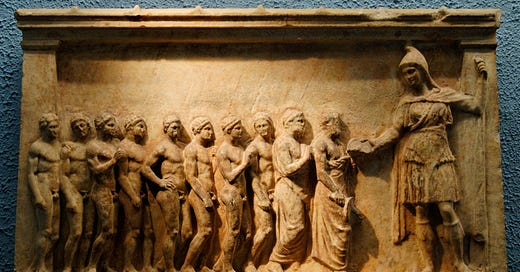What is Reality?
I had an interesting thought regarding what Western Culture sees as reality. Which ties into an earlier article I had written about subjectivity and objectivity. The fact that it relies on fundamental assumptions about what constitutes as valid ways of perceiving reality, through rationality and shared consensus reality. Whilst dismissing or overlooking both subjective experience, but also how the cultural assumptions and thus cultural psychological complexes in itself are actually subjective in nature, and not fixed, but subject to change and adaptation throughout historical time. And thus also not seeing how the particular socio-cultural interpretation colours this. Is it then not in a way such that consensus reality, as a manner to ascertain what constitutes reality not a sort of cultural echo chamber? Even if those conditioned into it might not realise it as such?
I would thus personally say that if we were to truly understand objective reality, the only way of doing such is to see beyond the dominant cultural narratives, and personal narratives we construct. Not by dismissing them, but by understanding said narratives, so we can account for them. Thus by bringing these contents to consciousness, we can become aware of more true objective and higher truths.
I would further add that also the narratives the culture tells about itself and other cultures, are just that narratives. As much my narrative about a certain person is only my own narrative that exists within my own mind and does not actually exist in actuality. As I only base my perception of this "objective reality" of who said person is, on the things I know about said person. Though it is never a true reflection of who said person is. Though I might get very close to understanding it.
Same for any other person and their perceptions of me, and the narratives they tell. Those are similarly only existing in their mind and thus only carry a certain amount of objectivity. Not that they are not valid, but that their nature is subjective in nature, and even the behaviours and actions that happen between me and said individual are perceived differently and thus interpreted differently, even if we can agree on the actions. Though what our narratives miss is the actual complexity of the individual, their entire history, unconscious dynamics, and various other factors we simply can not know.
So then truly, how much of what is dressed up as “reality” by the culture and thus the various means of information channels people use to inform themselves about the culture and it’s narratives, truly is actual reality. We can even see this with what I brought up about social media in the cult of positivity article as well. As here similarly the narrative distorts reality and frames it in a particular manner, which “frames” and thus ignores or represses certain aspects of reality, that it deems “bad” or avoids. Leading to perception of reality and the human experience which is incomplete.
Like in Plato's allegory, prisoners are chained in a cave, facing a wall where shadows cast by objects behind them are their only reality. This parallels how I now discussed Western culture relying on consensus reality and rationality as fundamental to perceiving reality. Just as the prisoners see shadows and take them for reality, we often accept consensus reality and rationality as unquestionable truths without critically examining these foundations. The philosopher must ascend out of the cave into the sunlight to perceive the true forms and attain knowledge. Only then can we truly get a grasp at an actual objective reality, which consists of the higher truths that are constant regardless of the culture, historical period or individual. Some of these truths being imbedded in myth, though also visible in narrative. If we are attuned to seeing the true underlying symbolic reality underneath it, which are symbols pointing to the higher reality. Which we can also understand psychologically through a Jungian or depth psychology perspective for instance. To get a better grasp on how these unconscious and cognitive processes influence our perception, but also the processes itself and archetypal and universal essences that transcend temporal and cultural constraints.
On that note I would like to end with this recent Aulos piece that I really enjoyed today. And like to thank you for taking the time to read this.




